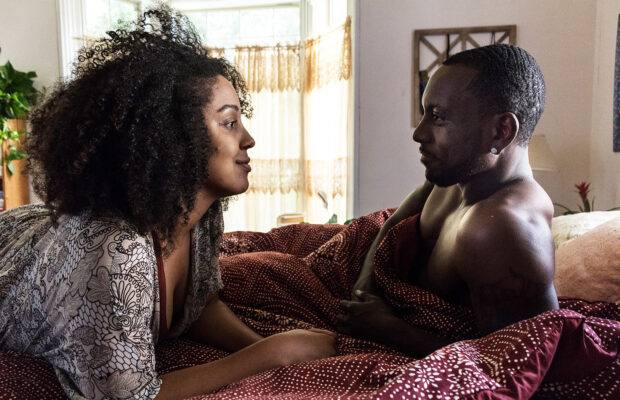“I’ll See You Around!”

I’ll See You Around explores a day in Lucas’s life, a 30-year-old African-American man living in Ithaca, New York, who is trying to finish his degree at community college. After discovering that his older brother, Kenji, who has just been released from jail, may be responsible for stealing his laptop to buy drugs, Lucas embarks on an emotional journey to learn how to cope with betrayal and dangerous blood ties. We follow Lucas as he navigates his relationships with his mother, child’s mother, and Ivy League girlfriend while most importantly striving to be a good father to his daughter. Will he be able to reconcile with those he loves, or will his troubled past destroy his chances?
VOD & DVD RELEASE DATE: Tuesday, 2/2/21
Available soon on:
Amazon, iTunes, Google Play, Vudu, Fandango and InDemand
My creative vision for I’ll See You Around developed out of a collaboration with my childhood friend, Lucas Monroe, a thirty-year-old man living in Ithaca, NY, where his family fled after his father was murdered in Poughkeepsie. A few years ago, Lucas approached me about helping him write his memoir, which quickly transitioned into making a short film with him titled “While I Was Gone.” After the short’s successful festival run at LA Film Festival, Dallas International, Flickers’ Rhode Island, Denver Film Festival, and Palm Springs International ShortFest, we immediately decided to make a micro-budget feature and dove further into developing the storyline together.
Sharing his personal life felt important and brave. I discovered that Lucas’ story and his natural talent on screen were a kind of hidden magnificence. He had so much to say about his past and constantly struggled to share his feelings. I was motivated to make this film for so many reasons, but most deeply because I want to build empathy. We worked together to create a dramatic narrative that uses incidents from his real-life to convey his struggle to come to terms with his father’s murder, cope with his brother’s addiction and incarceration, and learn to accept the responsibility of fatherhood.
The film is an intimate and mysterious portrait that probes specific incidents and relationships in his real-life revealed with an improvised quality rarely seen. It became an opportunity to explore Lucas’s story, and it gave him a platform to develop as an artist and explore his psyche. We become intimately familiar with Lucas and his family in ways that challenge our notion and perception of race, family dynamics, empathy, and forgiveness. – Daniel Fermín Pfeffer, Writer, Director












